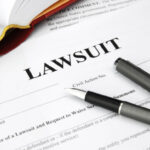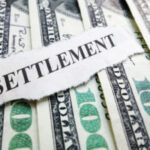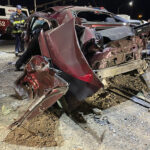A.M. Best Co. has upgraded the financial strength rating to ‘B++’ (Good) from ‘B+’ (Good) and the issuer credit rating to “bbb” from “bbb-” of Guam-based Pacific Indemnity Insurance Company (PI), and has revised the outlook to stable from positive. Best said the “ratings reflect PI’s solid risk-adjusted capitalization, continued improvement in operating results and prudent investment strategy.” They also considered management’s “commitment to cautious underwriting practices and pricing fundamentals. Offsetting factors include the company’s geographic concentration of risk in Guam and relatively high expense ratio as a result of the moderate book size.” Best explained that PI’s management team “has taken a prudent approach in managing the catastrophe exposure carried by the company and hence improved operating performance through cautious underwriting controls as well as extensive reinsurance programs. In addition, management is diligent in ensuring that all risks insured are properly priced to produce profitable results. As a result, the company has in the past few years terminated business that has proven to be unprofitable. Therefore, with the improvement in underwriting profitability and stable investment results, PI experienced excellent operating performance in the past two years. PI’s surplus as well as risk-adjusted capitalization, as measured by Best’s Capital Adequacy Ratio, further enhanced in 2008 as a result of the retained excellent operating earnings. PI generates its business primarily from the domestic insurance market, which is subject to natural catastrophe perils.” Best added that, “given the size of the company’s insurance book and its exposure in Guam,” it “remains cautious about the potential fluctuation in underwriting profitability going forward. Nonetheless, in view of the planned business growth, PI is expected to maintain a favorable risk-adjusted capitalization to support the risks underwritten. In addition, the company continues to maintain an underwriting expense ratio that is in excess of the industry composite. However, the elevated expense ratio is primarily driven by high commission costs paid to the company’s affiliated agency, which performs many of PI’s operational functions.”
Standard & Poor’s Ratings Services has affirmed its ‘A’ long-term counterparty credit and insurer financial strength ratings on Belgian-based reinsurer Secura N.V. The outlook is stable. The ratings continue to primarily reflect an explicit guarantee from parent company (A/Stable/–), which meets all of S&P’s relevant criteria. The guarantee relates to all current and future reinsurance contracts issued by Secura. The stable outlook reflects that on parent and guarantor KBC Insurance.
A.M. Best Co. has affirmed the financial strength rating (FSR) of ‘B++’ (Good) and issuer credit rating (ICR) of “bbb+” of Japan’s Fuji Fire & Marine Insurance Company, Limited, and has removed the ratings from under review with negative implications. The ICR has been assigned a negative outlook and the FSR a stable outlook. Best explained that the negative outlook for the ICR reflects its “concerns about the company’s capital buffer to absorb any negative impacts due to market volatility.” Best also estimates that the capital growth will be slower going forward. “During fiscal year 2008, the overall combined ratio deteriorated by 3 percent to 101 percent,” Best continued. “This is mainly due to the premium rate change of CALI business and the accelerated payment in motor business. The accelerated payment will be stabilized. Also, the premium rate of motor business is expected to increase this fall. The company launched a business plan including JPY 7 billion ($73 million) of cost reduction by 2010. Fuji Fire is reducing its risk assets to prevent further deterioration of capital and surplus, which caused around JPY 90 billion [$938 million] of impairment losses in fiscal year 2008. Moreover, the hedge options to prevent further significant losses from securities are still available. These actions eased concerns on further deterioration on capital, and the company maintained a relatively favorable solvency margin ratio. As of March 2009, the company’s capital adequacy measured by local solvency margin was around 506 percent, which is still favorable to maintain the ratings.” However, Best added that it “has concerns regarding the relatively large amount of deferred tax assets (DTA) from investment losses compared to Fuji Fire’s capital and surplus. Although the equity market indices have bounced back after closing financial results for fiscal year 2008, A.M. Best is cautious of the company’s investment income due to low interest rates and uncertainty in the market.”
Was this article valuable?
Here are more articles you may enjoy.

 Oregon Schools Sued for $9M After Young Girl Allegedly Raped
Oregon Schools Sued for $9M After Young Girl Allegedly Raped  Johnson Controls Unit to Pay $750M to Settle ‘Forever Chemicals’ Lawsuit
Johnson Controls Unit to Pay $750M to Settle ‘Forever Chemicals’ Lawsuit  Texas Among Several States Facing New Fire Risks: Weather Watch
Texas Among Several States Facing New Fire Risks: Weather Watch  Report: Vehicle Complexity, Labor ‘Reshaping’ Auto Insurance and Collision Repair
Report: Vehicle Complexity, Labor ‘Reshaping’ Auto Insurance and Collision Repair 